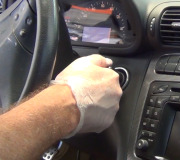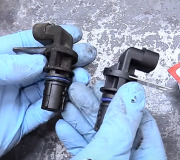Sunday, May 1st, 2016 AT 7:45 PM
The car will usually start, sometimes for weeks at a time, without issue. Then all of a sudden it just won't start. On the occasions that it won't start it either cranks slowly one time and then quits responding at all, or it just makes a clicking sound when you try to start it. However, if it cranks correctly, then it will start every single time. Sometimes it will start fine when I leave home and then I will get to the store or something and when I come out it won't start again. Usually if you try it 14 or 15 times it will eventually start, but sometimes even that doesn't help. Always though at some point during the day, I can eventually get the car to start. It has also quit running in traffic a couple times. Whatever is causing the issue also seems to be draining the battery.



